By Kenton X. Chance
KINGSTOWN, St. Vincent (CMC) — Some see it as a “holy herb” and for those who use it, marijuana is a gift from God for the benefit of mankind.
Percival Stapleton, who was among people attending a national consultation on marijuana this week, said he uses the drug as a “holy sacrament given to us by God, of which great men like King Solomon, even when he died, the spirit of God sent a seed and drop on his grave and it grew there.
“Weed is my best friend. It is disgraceful to say anything bad about marijuana,” Stapleton told the crowd, adding, “I smoke it day and night. I drink it like tea and ah smoking it until a dead”.
But there was also a warning that marijuana is addictive, and as such users should be treated as addicts.
Pharmacist Matthew Thomas, 73, said he has seen how homeless people, many of whom are marijuana users, have replaced sheep sleeping under galleries at one end of the capital.
“It has shown me over the 50 years the decadence of the black young men of this country mainly as a result of marijuana intoxication,” Thomas said.
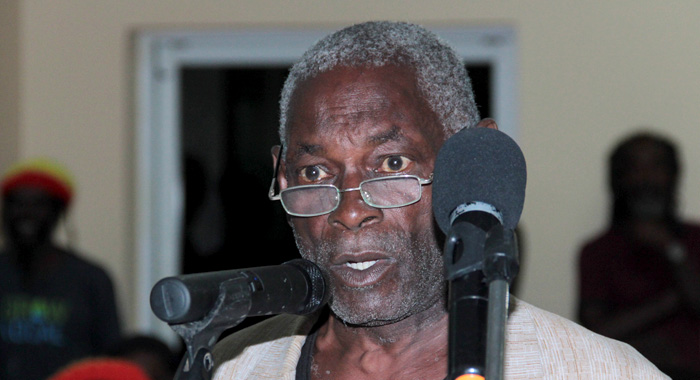
Former chief pharmacist, Tyrone Jack, warned the audience not to ignore the science about marijuana. He insisted that marijuana is addictive and like any addiction must be treated as a disease.
The consultation on Wednesday is the first held by the Regional Commission on Marijuana, chaired by Professor Rose-Marie Belle Antoine, the Dean of the Faculty of Law at the St. Augustine campus of the University of the West Indies, on the use of the drug for medicinal purposes.
Last year, Caribbean Community (CARICOM) leaders agreed on the composition of the Commission to examine marijuana legalisation throughout the 15-member regional bloc.
Bahamas Prime Minister Perry Christie, said then that the leaders had expected the Commission to “look into the economic, health and legal issues surrounding the use of marijuana and to consult with stakeholders to get a view on the issue.”
The marijuana legalization debate has been on the Caribbean’s agenda for more than a year.
In February last year, Jamaica’s Parliament agreed to decriminalise small amounts of marijuana and establish a licensing agency to regulate a lawful medicinal marijuana industry. The legislation allows for residents can carry up to two ounces of marijuana without it being on their criminal record, and grow up to five plants where permitted.
A statement posted on the CARICOM Secretariat website noted that the main issue underpinning marijuana liberalisation surrounds its classification as a drug.
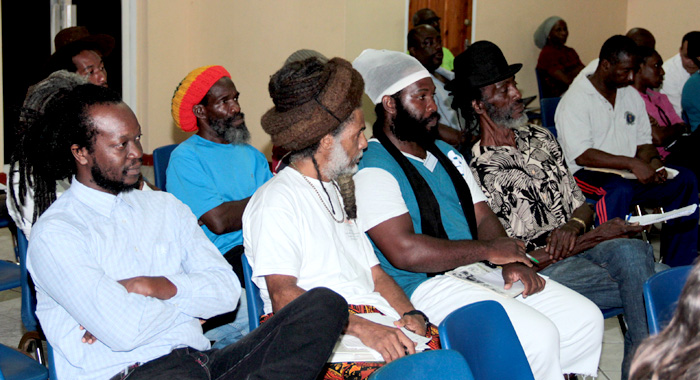
It said that the United Nations Convention on Psychotropic Substances, to which many, if not all Caribbean countries are party and model their local Dangerous Drugs legislation, contains four Schedules of controlled substances, ranging from most restrictive to the least restrictive .
“Marijuana is currently placed in Schedule II. This means that it is classified as a dangerous drug for which possession of any quantity becomes an offence. It is as a result of this classification that the other issues that fuel the currently marijuana debate stem.
“The main being the burden on the legal and judicial systems, arising from possession of small quantities of marijuana and the lack of its availability and accessibility for medical, recreational and research purposes,” the CARICOM Secretariat said, noting that while there is scientific evidence that supports the medical benefits of cannabinoids, there is also evidence that confirms the adverse effects of tetra hydrocannabinol (THC), which is the psychotropic or mind-altering constituent found in the plant.
“In considering re-classification, the salient issue to be determined is therefore whether the benefits to be derived from removal of current restrictions will outweigh possible harms of increased use.”
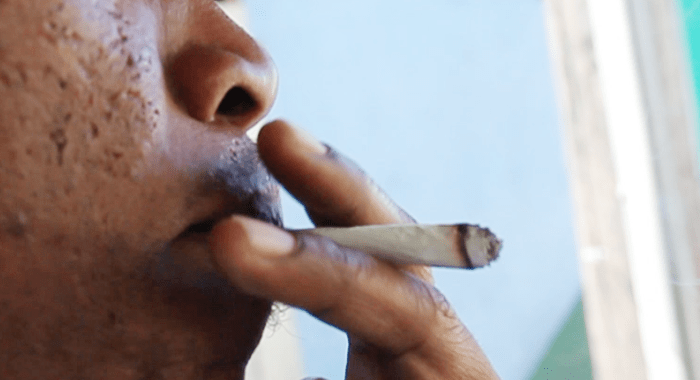
The CARICOM Secretariat said that the objective of the Commission will be to conduct a rigorous enquiry into the social, economic, health and legal issues surrounding marijuana use in the Caribbean and to determine whether there should be a change in the current drug classification of marijuana thereby making the drug more accessible for all types of usage.
The Commission will also recommend if there is to be a re-classification, the legal and administrative conditions that shall apply.
Director of Public Prosecutions (DPP), Colin Williams, who reserved comments on whether to change the existing legislation governing the use of marijuana here, raised the economic value of the plant during the debate.
He noted for example marijuana costs much more in neighbouring countries like Barbados than in St. Vincent and the Grenadines saying “the question is, who it is that reaps the benefits of this commodity. Quite apart from the sentimental value … This is an economic crop. Who reaps the benefit?”
He said he believes people might be willing to pay big bucks for licences in order to cultivate marijuana and that small farmers are not likely to be among those seeking to obtain the licences.
“So, I am just saying we need to be looking at the overall financials and the economics and all that,” Williams added.
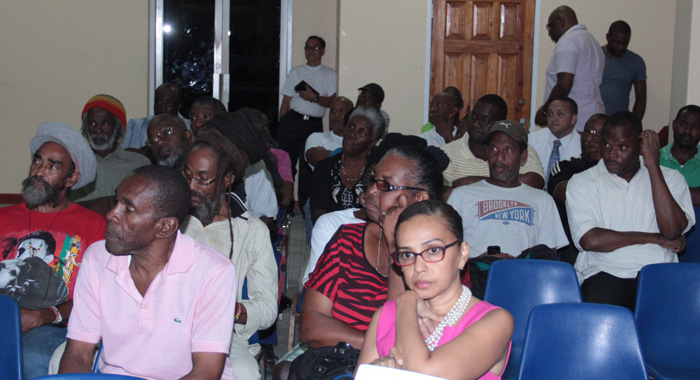
Many speakers at the consultation agreed that St. Vincent and the Grenadines (SVG) has established itself as one of the largest producers of marijuana in the region, and is also renowned for the quality of its product.
Longstanding activist for marijuana liberalisation, Junior “Spirit” Cottle said it is important that the interest of marijuana farmers be taken into consideration.
He said any discussion about changing marijuana laws must look seriously at decriminalisation for medicinal use and a sacrament for Rastafarians.
Cottle said he believes that changes to marijuana laws across the region would contribute to a reduction of crime and violence associated with the trade.
Many speakers at the consultation said the marijuana laws have made criminals of many of young people, including a young man who told the consultation that he spent five years in prison in Barbados because of the marijuana trade.
Attorney, Joseph Delves, told the consultation that he has appeared in court representing people on drug-related charges and views the marijuana laws as “very unjust and hypocritical”.
He said most of the debate in St. Vincent and the Grenadines on marijuana centre on the plant as having a negative impact on health.
Delves, a former sports administrator, said that that argument has a serious flaw, and posited that one cannot legislate issues relating to people’s personal choices about their health.
“As far as I see, this is a health issue and that is how it should be framed,” Delves said, noting that he was once involved in the preparation of a constitutional challenge to the nation’s cannabis law, but found that the government could seek shelter under the public health laws.
“But the point I want to make is this: there are lot and lots of substances that people put into their bodies on a regular basis — alcohol, cigarettes — we don’t even consider if they are harmful,” he said.
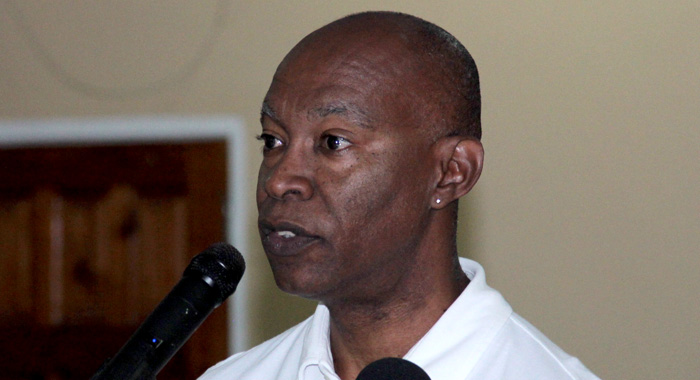
Delves said that two of the most harmful substances human consume daily are sugar and salt. He pointed out that amputation as a result of non-communicable diseases such as diabetes is widespread here, but no one would consider making sugar and salt illegal, or worst yet, making criminals, persons who consume sugar and salt.
“Should we continue to perpetuate a law that make persons criminals because they eat, or consume ganja? It’s crazy law and must go,” Delves said, informing the audience of the uneven enforcement of the marijuana laws.
“The Rasta man is like a red flag,” said Delves, who once wore dreadlocks.
Jack said it would be very difficult for any pharmaceutical company to register marijuana as a drug, instating it would be very difficult to standardise and that no ethical body would legalise a product that is going to be smoked since smoking is harmful.
“It is not going to clear any registration body,” Jack said, adding that he was not disputing that marijuana has health benefits.
He, however, said the research has to be on-going, as with any drug, adding that when a drug is registered, monitoring continues for decades to see if any adverse effects have been missed, and sometimes, some drugs are discontinued.
Jack told the consultation that doctors are bound by ethics to prescribe the most effective drug available. He said there are questions about whether marijuana is the most effective drug available to treat certain illnesses, noting that if marijuana is exposed to heat and the elements, it loses its strength, hence, as a drug, it would be difficult to register.
“If you single out the cannabinoids, you can have a standard, but that is where there will be challenges between the developed and developing world,” Jack said, urging the audience to consider what market for marijuana would be in SVG, considering that the plant is easy to grow, even using hydroponics.
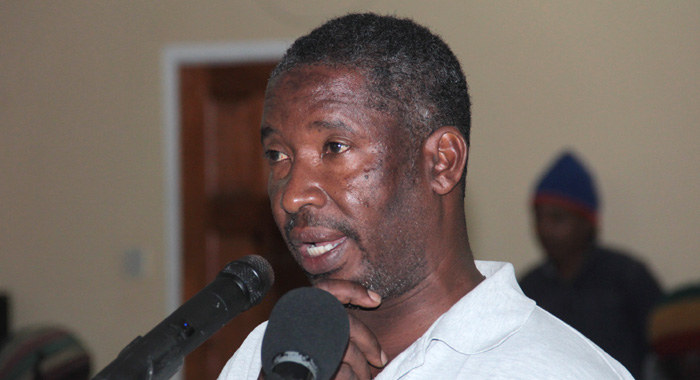
Jack also rebutted the argument about marijuana being in the Caribbean from creation, saying that the region was one of the last to come to the understanding and knowledge of marijuana. Asia was growing marijuana since the Third Century, he said, noting that marijuana came to Jamaica in the 1930s and to SVG in the 1960.
Director of National Emergency Management Organisation (NEMO), Howie Prime, has sought to link marijuana cultivation here to the damage done by extreme weather systems between 2010 and 2013.
He said forestry officials have said there is significant depletion of the forest, a lot of which has resulted from the contribution of marijuana.
While Prince didn’t comment on whether marijuana is good or bad, he said he wanted to ask farmers if it was necessary to cut so many trees.
“I am concerned about the degradation, cutting down do many forest trees so that the crop can be grown,” Prince said.




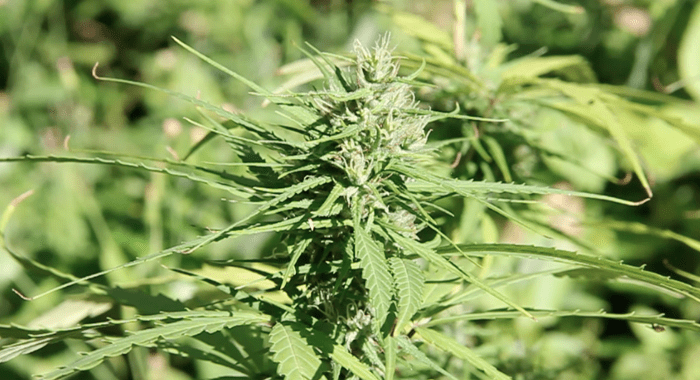


Matthew Thomas, as usual, doesn’t have a clue. If he did a little research about marijuana, he would find that it is far, far less harmful than many of the truely dangerous drugs he peddles in his store, namely countless prescription drugs that are both addictive, overused and lethal.
The use and effects of marijuana have been debated for hundreds of years and the most those who oppose it can come up with are personal annecdotes about a few homeless people who happen to be present or former consumers of a relatively harmless substance which millions of people all over the world use recreationally or even obsessively with no adverse effects.
Delves, on the other hand, is correct in his views.
If truth be told, most of the opposition to legalization is subliminally based on moral grounds — an aversion to people getting high — rather than spurious medical grounds.
There is a lot of confused thinking on the subject of illegal drugs. Reasons advanced for continuing to criminalize the use of marijuana use include:
i) It is addictive. So are alcohol and nicotine and for neither is the sale or consumption a criminal activity. So are opioids (synthetic drugs which mimic the effects of the active ingredients in opium and morphine) addictive. And while opioids are controlled, requiring a prescription from a medical person, their use is obviously not criminal. But they ARE addictive.
The USA experimented with prohibiting the sale of alcohol in the 1920s and 30s. All that happened was that the sale of alcohol passed into the hands of criminals who profited mightily from that exercise. Some bootleggers, it is true, went to jail, but such sales were profitable enough to make that risk worthwhile. And one could always bribe law enforcement officials – a small price to pay for the profits available.
ii) Smoking is bad for your health. As was pointed out at the meeting, so are salt and sugar. And the way to get people to stop doing something that is bad for their health is not to make the thing a criminal offence. One needs to educate people and convince them about the ill effects. Cigarette sales have declined in much of the developed world as a result of massive public information about the link between smoking and cancers of the lung, throat etc., and bans on smoking in enclosed places like restaurants and airplanes, since second hand smoke can affect non-smokers. No one so far as I know has ever been sent to jail for having,selling or smoking tobacco; but they do get sent to jail for possessing marijuana. It has been noted that the cigarette companies now focus much of their advertising in developing countries, most of which do not have such public awareness programmes.
iii) Something we are unwilling to recognize is that a substance may be neutral or even good in limited quantities but harmful if taken to excess. Excessive consumption of sugars, as was pointed out, is bad for us. But we do need some sugar, which our bodies need for energy. But our bodies convert all carbohydrates into the forms of sugar that we can use. That means we need to control the consumption of cane sugar (all those sugary fizzy drinks), high fructose corn syrup (used in many canned foods and which many of us do not recognize is a sugar) and also starches, which will be converted to sugars as we digest them. In moderation – necessary. In excess – harmful. How does this relate to marijuana? yes it can be addictive, although some strains have been bred that do not contain the addictive chemicals. But it can also be used medicinally – where it would presumably be used under prescription – just like opioids, which are the active, pain controlling chemicals in the sap of the opium poppy, and which are also addictive if used in excess. But nobody suggests that we should ban them. Did anyone notice that Prince died from what was termed “an accidental overdose of opioids”? Opiods that he had been taking for pain. Did anyone notice the Betty Ford, the former First Lady of the USA, publicly stated that she had become addicted to painkillers and very openly underwent treatment for said addiction. Nobody is suggesting that we criminalize the use of painkillers. And before anyone says that painkillers are different because they have a useful purpose, the answer to that is that we won’t know about possible useful purposes of marijuana until we find out how it works and what it can be useful for. I have read of three possible uses – in the treatment of glaucoma, in suppressing the nausea associated with chemotherapy in the treatment of cancer, and in suppressing epileptic seizures. Are these valid treatments? We won’t know until we do the research to find out what works (that is, what element in the plant does each or any of these things), and how it works.
It is also important to remind ourselves that all the criminality associated with marijuana is a costly and needless by-product of its illegality. One the other hand, several special-interest groups — law enforcement, the legal defence fraternity, growers and pushers — are violently opposed to the decriminalization of marijuana simply because much of their livelihood depends on keeping weed illegal.
HELLOOOO! No wonder Vincentians are the laughing stock of the Caribbeam… Lord have mercy on SVG, is this the time for weed conversation..your democracy is going down the drain and these folks having weed conversation. People open your eyes, this is a distraction. Some of you here weed talk and the first thing comes to mind is freedom to spoke or better yet sell… Hello! If you don’t have democracy where do you think you can smoke , much less sell.. Come on and done of you so call Rasta who claim to be righteous, weed should not be the focus of the day, your freedom should be the hot topic. The PM sure knows how to lead his Sheeps